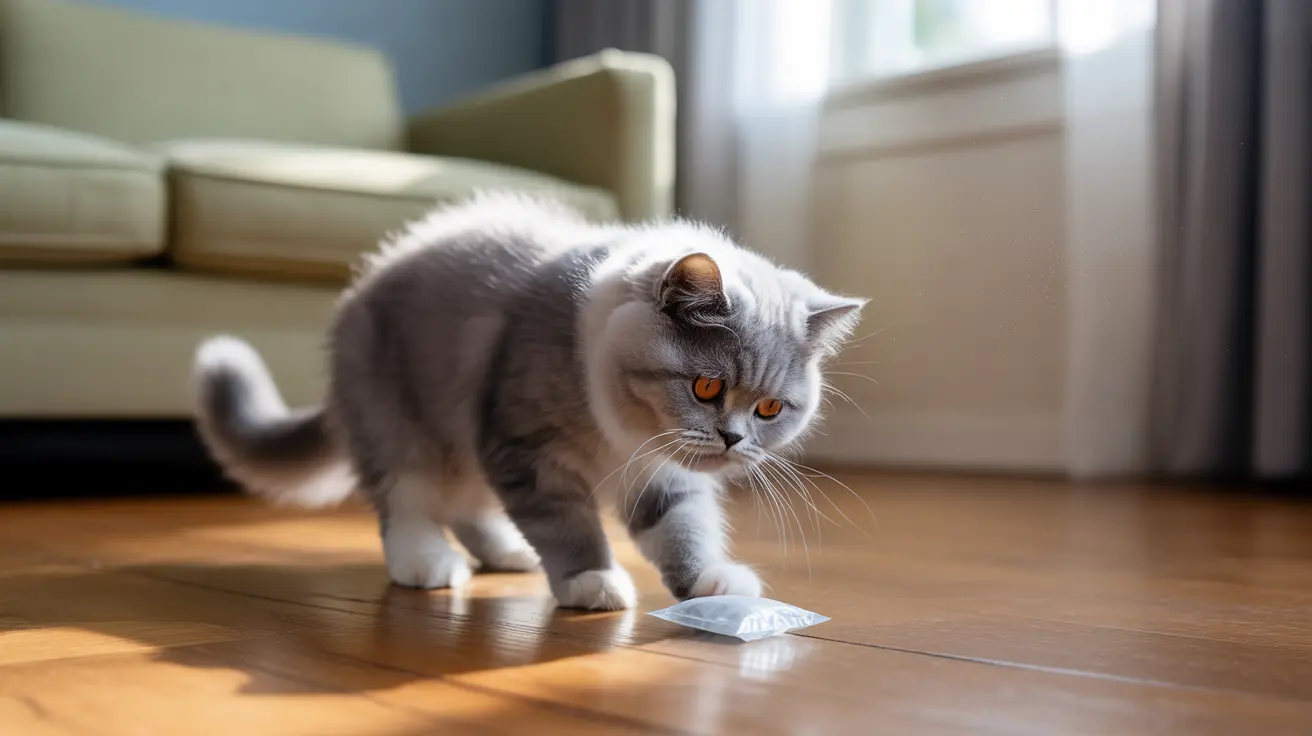Finding out your cat has eaten a silica gel packet can be alarming for any pet owner. While these moisture-absorbing packets are labeled "Do Not Eat," understanding the real risks and knowing how to respond can help you take appropriate action to protect your feline friend.
In this comprehensive guide, we'll explore the potential dangers, symptoms to watch for, and steps to take if your cat ingests a silica gel packet. We'll also discuss prevention strategies to keep your curious cat safe.
Understanding Silica Gel and Its Risks to Cats
Silica gel packets contain small, translucent beads made of amorphous silicon dioxide. While the gel itself is generally non-toxic, the physical packet and beads can pose several risks to cats:
- Choking hazard from the packet itself
- Potential intestinal blockage
- Mild gastrointestinal upset
- Possible complications from indicator dyes (in some packets)
Immediate Steps If Your Cat Ate a Silica Packet
If you discover your cat has eaten a silica gel packet, take these important steps:
- Remain calm and assess your cat's breathing
- Contact your veterinarian immediately
- Monitor for signs of distress or choking
- Preserve any remaining packet pieces for identification
- Watch for symptoms over the next 24-48 hours
Signs and Symptoms to Monitor
Physical Symptoms
- Vomiting or retching
- Difficulty breathing
- Drooling
- Gagging or coughing
- Abdominal pain or swelling
Behavioral Changes
- Lethargy
- Loss of appetite
- Hiding or unusual quietness
- Restlessness
- Changes in litter box habits
Treatment Options and Veterinary Care
Your veterinarian may recommend different treatments depending on the situation:
- Monitoring and supportive care for mild cases
- X-rays to locate the packet
- Possible induced vomiting (only under veterinary supervision)
- Surgery in severe cases of obstruction
Prevention Strategies
Protect your cat from future incidents by implementing these preventive measures:
- Store products containing silica packets in secure locations
- Dispose of packets immediately and securely
- Keep new purchases out of your cat's reach
- Check packaging thoroughly before allowing cat access
- Consider pet-proof storage solutions
Frequently Asked Questions
What should I do if my cat ate a silica gel packet?
Contact your veterinarian immediately and monitor your cat for signs of distress. Don't attempt to induce vomiting at home, as this can be dangerous for cats.
Can silica gel packets cause choking or intestinal blockages in cats?
Yes, silica gel packets can pose both choking and blockage risks. The packet itself and large amounts of beads can cause serious obstruction requiring emergency veterinary care.
Is silica gel toxic to cats if they swallow the beads inside the packet?
Plain silica gel is generally non-toxic, but some packets contain harmful dyes or additives. The main risks are physical rather than chemical, such as choking or blockage.
What are the warning signs that my cat is suffering after eating silica gel?
Watch for vomiting, difficulty breathing, lethargy, loss of appetite, abdominal pain, or changes in behavior. Seek immediate veterinary care if these symptoms appear.
How long does it take for silica gel to pass through a cat's system safely?
If no obstruction occurs, small amounts typically pass within 24-48 hours. However, always monitor your cat closely and follow veterinary advice during this period.
Remember, while silica gel packets are generally non-toxic, they can still pose serious risks to your cat. When in doubt, always consult with your veterinarian for professional guidance and peace of mind.






